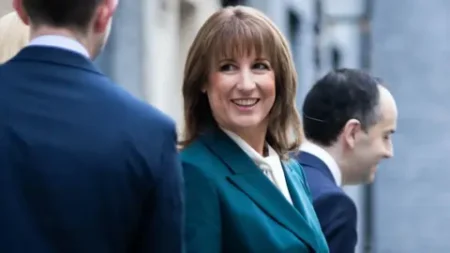In light of the recent analysis by the National Institute of Economic and Social Research (NIESR), there is increasing speculation surrounding the financial strategies that Chancellor Rachel Reeves may adopt in the upcoming budget. As the economic climate continues to demonstrate signs of instability, it is crucial to examine what economic levers are available to Reeves to address impending fiscal challenges.
The NIESR report illustrates a rather bleak forecast for the UK economy, spotlighting a significant shortfall in government revenues. Currently, Reeves faces a stark borrowing cap of merely £10 billion, a constraint that severely limits her capability to respond to ongoing economic fluctuations. This report underlines the necessity of creating a “large buffer” against vulnerabilities in fiscal management, especially amidst uncertainties linked to global economic trends and domestic challenges.
Moreover, previous decisions and policies have fostered an atmosphere of what NIESR describes as “piecemeal policy tinkering.” Such an approach has fostered sustained “economic uncertainty,” making it increasingly critical for the Chancellor to adopt a more strategic long-term policy framework rather than reactive measures. The pressure to make difficult decisions may prompt Reeves to take proactive measures now rather than defer them to the later stages of the budget planning cycle. By confronting adverse fiscal realities upfront, the government could potentially dispel the pervasive climate of apprehension that has developed among businesses and consumers alike.
At the heart of these discussions lies the need to reconcile the government’s commitment not to amend the main tax rates with the emerging realities of a widening budget gap, conservatively estimated by NIESR at £40-50 billion. In examining the various avenues available for addressing this financial mismatch, it becomes increasingly clear that tax increases are likely to be a primary tool at Reeves’s disposal. Although the government has previously pledged to avoid altering the principal tax rates, there may still be substantial scope for modifications in areas such as Value Added Tax (VAT), pension allowances, and council tax.
Additionally, the prospect of extending the freeze on income tax thresholds represents another potential fiscal lever available to the Chancellor. This maneuver would not only help recoup necessary revenue but would also allow for a broader re-evaluation of the tax landscape in light of current economic vulnerabilities.
However, the timing of implementing such measures may be contingent upon forthcoming economic data, with key indicators set to be released in the coming days. The Bank of England’s anticipated decision on interest rates and its accompanying economic assessments will likely shape the context within which Reeves operates. In particular, recent reports have suggested a decline in the UK’s economic growth relative to its G7 counterparts, thereby intensifying the challenges facing government finance and policy planning.
Additionally, NIESR does not advocate for significant alterations of the recently established borrowing rules, suggesting they remain a critical aspect of maintaining fiscal discipline. These rules dictate that routine government expenditures should be funded through tax revenues as opposed to additional borrowing, with an expectation for debt-to-income ratios to diminish by 2029-30.
Thus, while the call for substantial tax hikes remains a contentious topic, the governmental landscape is fraught with obstacles that necessitate serious consideration. On one hand, Reeves must strive to stabilize the economic environment while navigating the political ramifications of any taxation policies. On the other, external expectations from bodies like the International Monetary Fund could further influence and guide government financial strategies, particularly with their recommendation for annual budget adjustments as a means to mitigate uncertainty.
In conclusion, the trajectory of the UK’s economic response hinges on Reeves’ adeptness in maneuvering through this complex terrain. Strategic economic policymaking will require not only addressing ongoing challenges but also preparing for prospective fiscal pressures. The gravity of the situation is underscored by the considerable predictive gap and mixed economic signals currently flooding the landscape, necessitating a courageous and forward-thinking fiscal approach as we move further into the autumn budget discussions.











